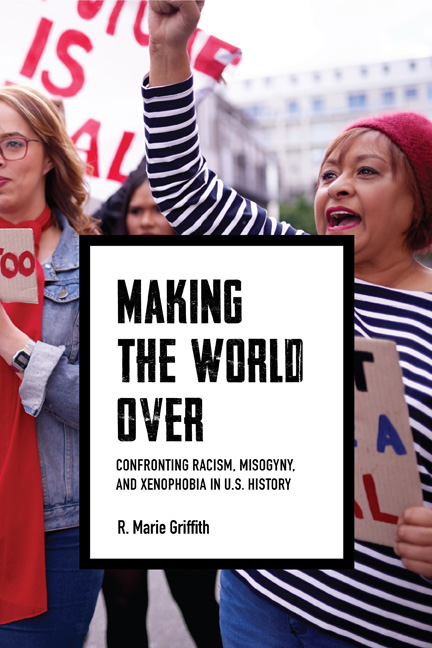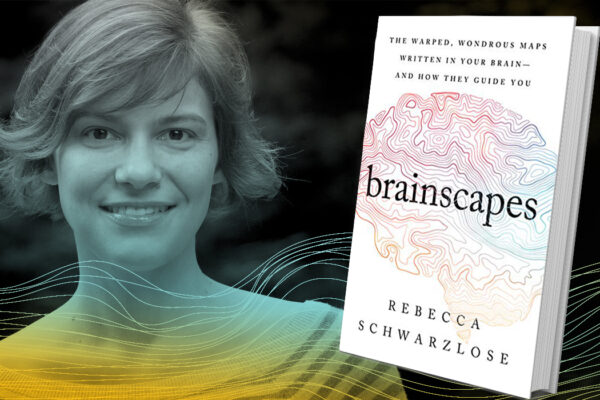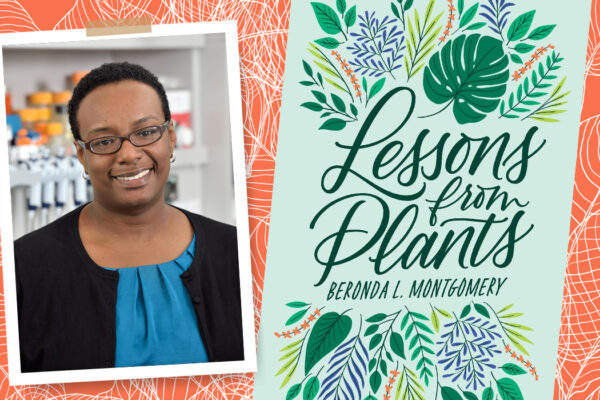Over the last decade, R. Marie Griffith, the John C. Danforth Distinguished Professor in the Humanities, has given countless talks around the country about the deeply challenging and divisive issues of our time. After each talk, without fail, an audience member will ask, “What can we do?”
“People are pleading aloud for ways to help improve the civic and political culture of the United States and to end the suffering and injustices they see in their communities,” Griffith says.
In her newest book, Making the World Over: Confronting Racism, Misogyny, and Xenophobia in U.S. History (May 2021, University of Virginia Press), Griffith answers that all-too-familiar question, giving readers tools to listen and debate productively and address deep social injustices. The book, she says, is for anyone who may be fighting a sense of helplessness about the polarization and social unrest facing our society.

The title of the book is inspired by the famous James Baldwin quote, “We made the world we live in, and we have to make it over.”
“Making the world better is too lofty and often paradoxical,” Griffith says. “Better for whom? Throughout history, well-intentioned efforts to make the world better for some have often made it worse for others. But to make the world over — that is a more audacious, more challenging, more foolhardy goal than making the world moderately better.
“But what choice do we have?”
According to Griffith, to make the world over, we must start by confronting the hardest truths of our history, which she acknowledges can be uncomfortable, but argues is the only way forward.
“Reckoning with history is so important. This often gets misunderstood: Some believe people like me are calling for people to be paralyzed by ‘white guilt.’ But that’s not it at all — it’s about taking the blinders off so we can acknowledge injustices and make constructive changes to address these issues.”
A historian of religion, Griffith carefully considers the history of these conflicts around racism, immigration, misogyny and reproductive rights, and why they remain so unresolved and bitter today. She also sheds light on how to encourage constructive dialogue and move society forward.
In the first chapter, Griffith reflects on the legacies of slavery in the United States, as well as perennial conflicts over telling that history and teaching it to new generations of students, which has boiled up recently under the name “critical race theory.”
“It’s time for us to change the conversation and to hold ourselves, each other and our leaders accountable.”
R. Marie Griffith
In the second chapter, she turns her attention to America’s immigration policy and struggles over which foreigners should be welcomed across our borders. Next, she explores the nation’s long struggle over gender roles and the persistent entrenchment of misogyny in culture and politics. In the fourth chapter, she addresses what some consider the most contentious issue of all: women’s reproductive rights and abortion. In this chapter, she addresses the possibilities and limits of this conversation and whether people can converse authentically without unduly compromising their values.
“Our political system has benefited from anger and fear,” Griffith says. “These emotions are motivating and can be manipulated by politicians. It’s time for us to change the conversation and to hold ourselves, each other and our leaders accountable.
“Really, this is not that different than holding ourselves accountable in our personal relationships with family and friends. It means acknowledging when we do wrong and trying to rectify and make amends for that.”


